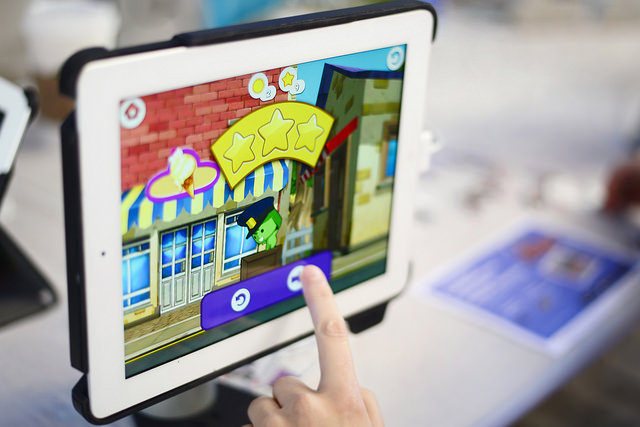Clinicians who work with kids know that they are tied closely to their technology. The same goes with parents. However, how often does a parent answer a phone call or return a text during a meeting with you? Or use his cell phone as a tool to calm a disruptive child?
Due to the immersive involvement of children with digital media and (to a slightly lesser degree) many parents of young children, it is increasingly important for child therapists to use these tools in their treatment. Individual therapists are beginning to use digital technologies in a variety of fashions. A few use video games to introduce process-oriented concerns in psychotherapy; some use videos and films as tools to investigate themes and conflicts in treatment; while others encourage the use of emails, blogs, and other writing tools to express one’s feelings. Many therapists have designed websites that provide information about their practices, allow clients to complete information and insurance forms online, and provide links and resources for psychoeducation.
[cjphs_content_placeholder id=”73595″ random=”no” ]In the course of treatment, most child therapists who use video games or other digital technologies in their practices use them simply as an opportunity to develop rapport or as a reward or treat at the end of a session. There is no question that using video games and other digital technologies as icebreakers, or as part of enhancing treatment compliance can be helpful. However, it does not sufficiently capture the value of using these technologies in treatment.
Small groups of therapists have begun to broaden their perspective on the use of digital technologies for children in treatment. This is what I call “digital play therapy.” Digital play therapy is defined as a collection of techniques that uses video games, apps, and screen-based technologies to improve engagement, accessibility, compliance, and outcomes in psychotherapy with children. Digital play therapy uses digital strategies to enhance communication with clients, provide access to psychoeducational materials, and serve as a tool in the psychotherapeutic process. Digital play therapy creates an opportunity to provide ongoing practice/skill development/generalization outside of the therapy office. Digital play therapy uses popular video games and digital technologies such as cell phones, iPods, and the Internet to enhance process-oriented techniques such as play therapy and to train directly in the development of executive- functioning, communication, and social skills.
Digital play therapy includes strategies such as using selected video games to teach thinking and executive functioning skills both in the office and as part of therapy homework. Digital play therapy is a source of recommendations about using technologies to assist in improving academic and executive functions in schools. Digital play therapy provides specific techniques for using software and technologies such as Google Earth to help engender discussions and explorations of issues in treatment. For parents, digital play therapy includes the use of online psychoeducational tools, recommendations for personalized websites, online behavioral checklists, and routine emails and electronic homework.
Many in-office prescriptions for using video games, apps, and other technologies are provided as part of the LearningWorks for Kids clinicians’ page. The team at LearningWorks for Kids is hopeful that clinicians will begin to share their own ideas for digital play therapy on forums that we will make available to them.
Featured Image Credit: Games for Change




